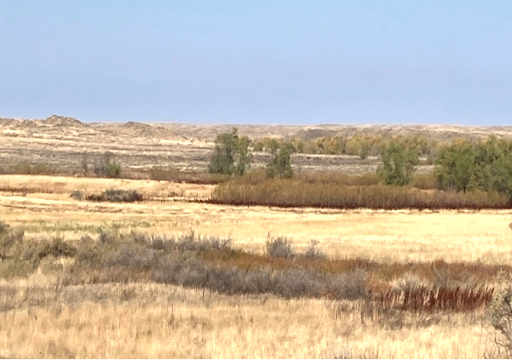 |
| Potential abundant bison habitat on the CMR Refuge |
The long-standing hope for restoring wild bison on the Charles M. Russell National Wildlife Refuge is generating an unusual amount of publicity. Unfortunately, the issue is becoming confounded and divisive, diminishing prospects for any solution. The Coalition suggests three foundations for a way forward.
First, bison for the CMR Refuge has to become a national issue. Montana will not participate in a reintroduction for the foreseeable future. The Department of Interior must restore bison to the Refuge unilaterally.
In 2021, the Montana legislature and Governor put a legal capstone on 110 years of Montana opposition to bison restoration in the state. Prohibiting bison restoration by the state will not be changed without voiding laws by a very different legislature and Governor. Promoting stakeholder support for bison in isolation from numerous other partisan political issues will not accomplish this change. It is time to recognize that many decades of Montana political opposition to bison will continue. This opposition has violated the Refuge obligation for federal/state cooperation that produces timely and effective management of the Refuge and justifies federal action on the Refuge without Montana support.
Second, we propose the issue of restoring wild bison be considered separately from the much larger issues of environmental justice and Native American reparations, including the “Land Back” movement. These larger issues are complex and involve alternative beliefs, perspectives and interpretations of history. Consensus on these issues may never occur, rendering bison restoration on the Refuge improbable.
We believe the issue of bison restoration should focus on but two issues: What are the values associated with Tribal-trust bison, and what are the values associated with public-trust bison on public lands; and how can we best achieve both these goals. This is the way forward for any foreseeable progress.
Third, achieving both these sets of goals and their respective values, should be a cooperative, not divisive process. Many Tribes seek access to bison and bison habitat for cultural, spiritual, nutritional and commercial values. The Coalition supports achievement of these values. In contrast, goals for public-trust bison on a federal Refuge, as stated in federal law, are biological diversity and integrity and recreational benefits for the general American public, including Native Americans. The two sets of goals are, in many ways, incompatible. But goals for Tribal-trust bison can be maximized on Tribal lands; goals for public-trust bison can be maximized, perhaps only, on National Parks and Refuges. Each side of this already divisive issue should act to promote achieving both sets of goals in this manner. We should focus on the goals, and how best to mutually achieve them.
No comments:
Post a Comment